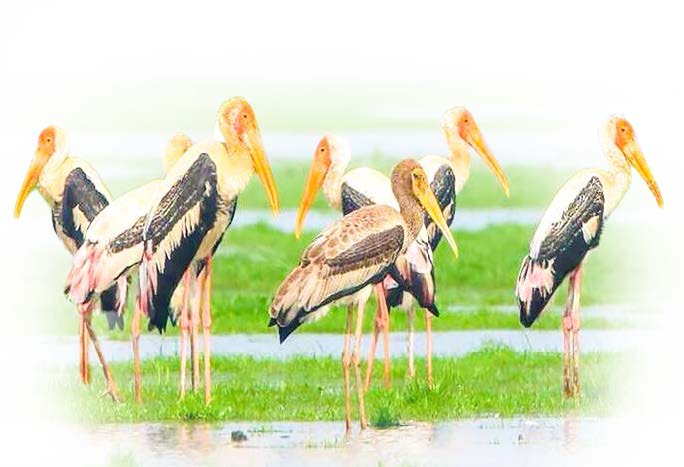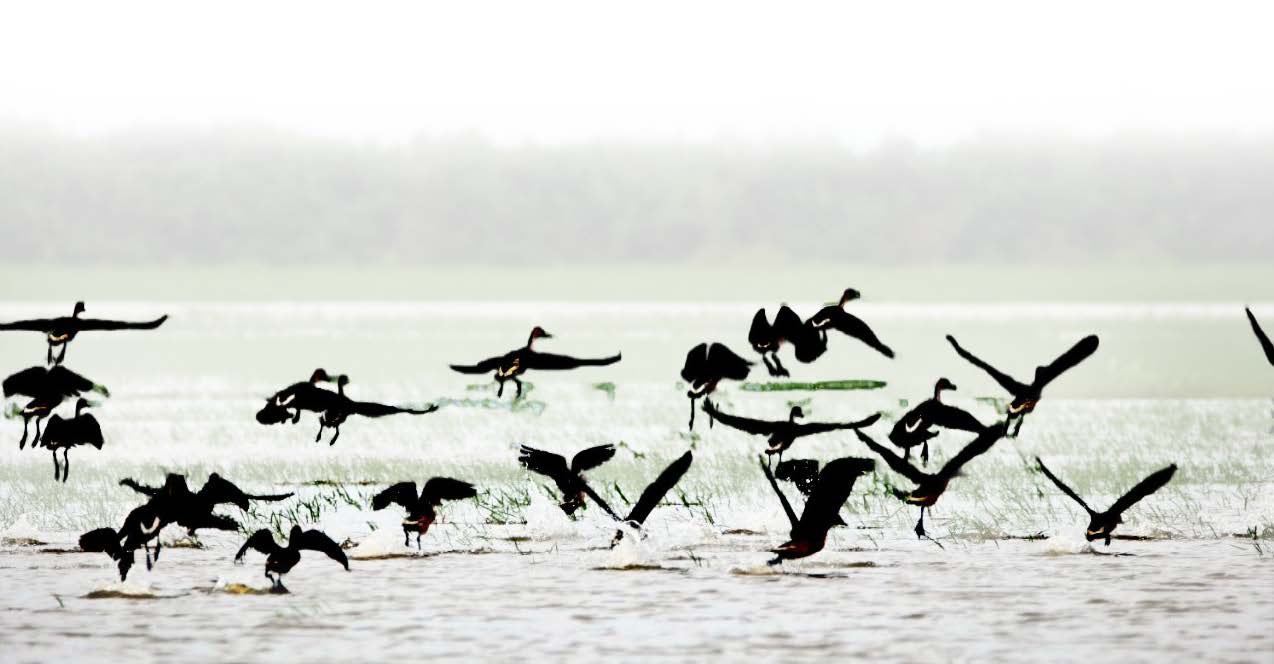AROUND 500 critically endangered Asian Openbill storks (commonly known as hnget kyar) have been spotted foraging at the Moeyungyi Wetland Sanctuary in Bago Region, according to the Moeyungyi Wetland Sanctuary Warden Office.
The sanctuary is a rich natural environment in Myanmar, renowned for its thriving wetland ecosystem. It serves as a seasonal refuge for 12 species of endangered birds, including the Asian Openbill storks, which have recently arrived in groups. Unlike other wetlands, where these birds are rarely seen, Moeyungyi has become a key habitat during this period.
According to the sanctuary warden, early monsoon rains this year have led to the arrival of nearly 500 Asian Openbills around the transition from summer to the rainy season. This is considered a positive sign for the wetland, as these birds are not typically found in other similar environments. Usually, only a few individuals are spotted throughout the year, but this month has seen an unprecedented flock.
As a native species of Southeast Asia, Asian Openbills are observed in countries like Cambodia, Thailand, and Singapore, with Cambodia being their primary breeding ground. Due to their instinctual awareness of abundant food sources, they are naturally drawn to Moeyungyi, where wetland flora and fauna thrive.
The sanctuary’s warden emphasizes the importance of conserving Moeyungyi Wetland, a globally signif icant habitat for endangered birds. The community must work together to maintain the sanctuary’s ecological balance, ensuring its long-term survival.
The Asian Openbills started arriving at the wetland in April and typically leave in early June. During the transition from summer to monsoon, snail-eating birds like the Asian Openbill feed on snails clinging to rice plants, while larger snails in waterlogged fields are also consumed. Their presence enhances the wetland’s natural beauty and helps control the population of rain-fed snails, which can harm paddy fields.
In Myanmar, snail-eating birds generally breed at Inlay Lake and then migrate to other wetlands, including Moeyungyi. The Asian Openbill storks, however, do not typically inhabit Inlay Lake or Indawgyi Lake, but they frequent Moeyungyi Wetland during August and September. Internationally, Asian Openbills can be found in Spain, Sweden, Denmark, Greece, the Netherlands, India, and Africa. In Asia, they are primarily spotted in Myanmar’s Ramsar-designated wetland, Moeyungyi. — Thitsar (MNA)/KNN



